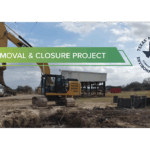
In today’s world, environmental compliance is a crucial aspect of any business or organization. College Station, with its commitment to sustainability and environmental responsibility, takes this issue seriously. Environmental compliance auditing plays a vital role in ensuring that organizations are meeting the necessary standards and regulations to protect the environment.
Understanding Environmental Compliance Auditing
In essence, environmental compliance auditing is a comprehensive assessment of an organization’s practices and operations to guarantee compliance with environmental regulations. It involves evaluating a range of factors, including waste management, air quality, water usage, and hazardous material handling.
Definition and Importance of Environmental Compliance Auditing
Environmental compliance auditing can be defined as a systematic examination of an organization’s environmental aspects to assess compliance with applicable laws, regulations, standards, and voluntary initiatives. It ensures that organizations are fulfilling their legal and ethical obligations to protect the environment and minimize their impact on ecosystems.
Environmental compliance auditing plays a crucial role in today’s world, where environmental sustainability is of paramount importance. By conducting these audits, organizations can proactively identify areas where they may be falling short in environmental performance and take necessary actions to rectify them. This not only helps protect the environment but also contributes to the overall well-being of the organization and its stakeholders.
The importance of environmental compliance auditing cannot be overstated. It helps identify areas where an organization may be falling short in environmental performance and provides an actionable roadmap for improvement. Moreover, it helps organizations remain accountable and transparent to stakeholders, regulators, and the local community.
By conducting regular environmental compliance audits, organizations can demonstrate their commitment to environmental stewardship and gain the trust and support of their stakeholders. This, in turn, can enhance their reputation and competitiveness in the market.
Key Components of an Environmental Compliance Audit
An environmental compliance audit comprises several key components, each aimed at assessing different aspects of an organization’s environmental performance:
- Review of Environmental Policies and Procedures: This involves examining an organization’s policies, procedures, and manuals related to environmental management to ensure they are up to date and compliant with the latest regulations. It also includes evaluating the effectiveness of these policies in driving sustainable practices within the organization.
- Site Inspection: A physical site inspection is conducted to assess potential environmental risks, identify areas of non-compliance, and evaluate the effectiveness of environmental controls and safeguards. This includes examining the condition of equipment, storage areas, and waste management practices.
- Document and Record Review: Auditors review relevant documents and records, such as permits, licenses, emission reports, waste management logs, and training records. This helps ensure that the organization has the necessary permits and certifications in place and is maintaining accurate and up-to-date records.
- Employee Interviews: Auditors may interview employees at various levels within the organization to gather additional information, validate existing data, and assess the level of awareness and understanding of environmental policies and procedures. This provides insights into the organization’s culture and helps identify areas where further training and awareness programs may be required.
- Performance Evaluation: The audit team evaluates an organization’s environmental performance based on established metrics and benchmarks, comparing it to legal requirements, industry standards, and best practices. This allows organizations to gauge their progress and identify areas for improvement.
By conducting a thorough assessment of these key components, environmental compliance audits provide organizations with a comprehensive understanding of their environmental performance and enable them to make informed decisions to enhance their sustainability efforts.
The Role of College Station in Environmental Compliance
As a city committed to environmental stewardship, College Station has established comprehensive environmental policies, regulations, and initiatives that organizations within its jurisdiction must adhere to.
Local Environmental Policies and Regulations
College Station has enacted a range of environmental regulations and policies that organizations must comply with. These include restrictions on air and water pollution, waste management practices, and the protection of natural resources.
These regulations are designed to safeguard the environment and promote sustainable development within the community. Compliance with these regulations ensures that College Station remains a clean, healthy, and environmentally conscious city.
The Impact of College Station’s Environmental Initiatives
College Station’s environmental initiatives have played a significant role in raising awareness and promoting compliance among organizations. By actively engaging with businesses, educational institutions, and residents, the city has fostered a culture of environmental responsibility.
Through various programs, such as energy efficiency incentives, waste reduction campaigns, and sustainable transportation initiatives, College Station has encouraged organizations to adopt sustainable practices and reduce their environmental footprint.
The Process of Conducting an Environmental Compliance Audit
The process of conducting an environmental compliance audit involves several stages, each serving a specific purpose and contributing to the overall assessment of an organization’s environmental performance.
Pre-Audit Planning and Preparation
Before conducting the actual audit, proper planning and preparation are crucial. This involves defining the scope of the audit, gathering relevant documentation, and establishing a timeline for the audit process.
During this stage, auditors also familiarize themselves with the organization’s operations and environmental policies to ensure a comprehensive and efficient audit.
Conducting the Audit: Steps and Procedures
Once the planning stage is complete, auditors move on to the actual audit. This stage involves onsite inspections, document reviews, interviews with employees, and performance evaluations.
Auditors meticulously assess an organization’s compliance with environmental regulations, identify any gaps or areas of non-compliance, and document their findings.
Post-Audit Activities and Reporting
Following the completion of the audit, auditors compile their findings and prepare a comprehensive report. This report outlines the organization’s environmental performance, identifies areas of non-compliance, and provides recommendations for improvement.
Organization management can then utilize this report to develop action plans, allocate resources, and implement necessary changes to ensure environmental compliance moving forward.
Challenges in Environmental Compliance Auditing
While environmental compliance auditing is crucial, it is not without its challenges. Auditors often encounter various obstacles that can hinder the effectiveness and efficiency of the audit process.
Common Obstacles in Conducting Audits
Some common challenges that auditors face include inadequate documentation, lack of cooperation from employees, limited access to information, and resistance to change. These challenges can make it challenging to gather accurate data and assess an organization’s true environmental performance.
Strategies for Overcoming Audit Challenges
To overcome these challenges, auditors can employ various strategies, such as implementing clear documentation requirements, fostering open communication with employees, providing training and education on environmental compliance, and leveraging technology to streamline data collection and analysis.
By addressing these challenges proactively, auditors can enhance the effectiveness of the audit process and ensure accurate assessment of an organization’s environmental compliance.
Future of Environmental Compliance Auditing in College Station
As the field of environmental compliance evolves, College Station continues to embrace emerging trends and technologies to enhance the effectiveness of audits and foster sustainable practices.
Emerging Trends in Environmental Auditing
One of the emerging trends in environmental compliance auditing is the integration of sustainability principles into audits. This involves assessing not only compliance with regulations but also an organization’s efforts towards sustainability, such as energy efficiency, waste reduction, and carbon footprint reduction.
The Role of Technology in Future Audits
Technology is playing an increasingly crucial role in environmental compliance auditing. Advanced software applications, data analytics tools, and remote sensing technologies enable auditors to gather and analyze data more efficiently, improving the accuracy and effectiveness of audits.
Furthermore, technology allows for real-time monitoring of environmental parameters, facilitating proactive identification of non-compliance and prompt corrective actions.
In conclusion, environmental compliance auditing is essential for organizations to meet their environmental responsibilities and ensure the well-being of the ecosystems in which they operate. College Station’s commitment to environmental stewardship, along with the comprehensive auditing process, ensures that organizations in the area can align their operations with environmental regulations and best practices. By continuously addressing challenges and embracing innovative trends and technologies, College Station is paving the way for a sustainable future.
As College Station continues to lead in environmental stewardship, your organization can stay ahead of compliance and sustainability challenges with the expertise of ESE Partners. Our team of dedicated environmental engineers and scientists is ready to support your needs in assessment, remediation, compliance, and beyond. Embrace a future where environmental responsibility and business progress go hand in hand. Request A Proposal today and partner with us to ensure your operations contribute positively to the community and the environment.








